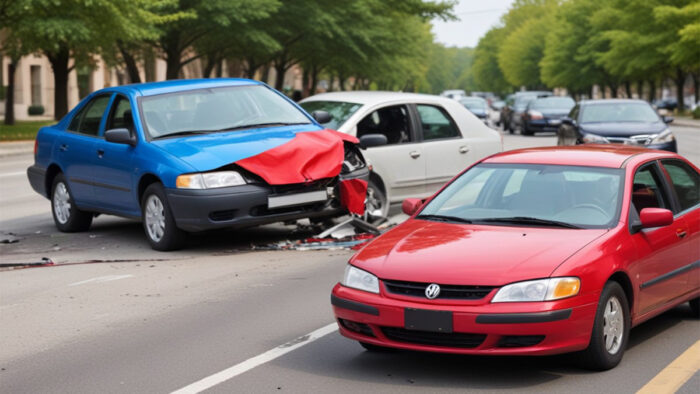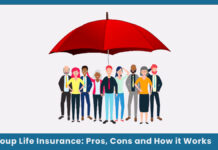Whether or not you’re at fault in the event of an accident, a car accident is usually a traumatic experience. If you’re wondering whether a non-fault accident will affect your insurance, you are not alone! If you are involved in an accident and you’re not at fault, there are a myriad of options to opt for.

It often makes sense to have a sense of relief that your car insurance won’t be affected by a non-fault accident, but that is not usually the cause. The assumption is that you’re deemed responsible for the accident that only affects your insurance; unfortunately, non-fault accidents also affect your car insurance rate.
In this article, we aim to provide answers to all the questions probing your mind. In order not to miss out on insightful information, read to the end of this detailed and comprehensive.
Car Insurance Companies with Non-Fault Accident Coverage
We have helped to curate a list of some renowned insurance companies and the average rates for non-fault accidents. Check them out.
| Company | Average 6-month insurance premium in not-at-fault collision |
| Allstate | $1,013 |
| Farmers | $869 |
| GEICO | $642 |
| Nationwide | $639 |
| Progressive | $770 |
| State Farm | $677 |
| USAA | $567 |
If you have a car accident and you’re not at fault for the damages incurred, you can contact an insurance company and file a claim for your injuries or damage to your vehicle through your uninsured motorist coverage. Uninsured motorist coverage is specifically designed to protect you in the event that the driver who is at fault for the accident does not have insurance or enough coverage to cover the damages caused.
Will A Non-Fault Accident Affect My Insurance Premium?
Unfortunately, non-fault claims will be recorded as part of your claim history. Although it seems unfair, that is usually the case with every insurance company. Your insurance premiums will increase even if you file a non-fault claim. Most insurance companies consider you a higher risk even if you were not at fault for the accident.
Also, they found that drivers who have made non-fault claims have a tendency to make another, hence the reason it would have an impact on your insurance premium.
Does the Level of My Car Insurance Affect My Claim?
Well, if you’re not at fault for the damages incurred from the accident, the level of your car insurance won’t affect your payout. In most cases of a non-fault accident, you will be claiming on the other driver’s policy. But in cases where the other diver does not have insurance or enough coverage, it would affect your own policy.
However, if you’re deemed responsible for an accident, you will need a comprehensive car insurance policy to compensate the other driver. Either way, it is important to contact your insurance provider to get a better understanding of how it works.
Tips on How to Save Money on Your Car Insurance After an Accident
If you’re involved in an accident, there are so many ways to still get a good deal on your car insurance. If you seek advice on how to reduce your insurance premiums after an accident has occurred, follow the steps highlighted below:
• Think twice before making another claim
This is one of the fastest ways to reduce your car insurance premiums. If the damages incurred in the event of an accident are relatively minor, it often makes sense to pay for the cost of repairs out of your own pocket. This helps save costs and keeps your premium rates from going higher.
Get a quote and know how much it would cost for the repair in order to get a better understanding of the potential payout before filing a claim.
Although it defeats the purpose of having car insurance, it is advisable to use your insurance policy as protection against major accidents rather than minor damage.
• Trade down your vehicle
It is wiser to trade down your vehicle to a lower insurance group if you’re involved in a non-fault accident. If the car is classified in a high insurance group, we advise that you trade to a lower group; this would ultimately reduce your insurance premiums after an accident occurred, and your car would be more economical to run and cheaper to maintain.
• Choose a car with safety features
Another important thing is to choose cars with safety features that are cheaper to insure and can be classified in the lower insurance groups. Your car should have safety features like anti-lock braking systems (ABS), automatic emergency braking (AEB), airbags, adaptive headlights, electronic stability control, and traction control.
• Avoid unnecessary car modifications
To avoid high-cost and theft situations, stay clear of some unnecessary and uneconomic upgrades and modifications on your vehicles, such as alloy wheels, spoilers, body kits, and upgraded headlights. This is because the cost of replacing them when they are damaged is on the high side, which may attract potential thieves to the car.
By following these steps, you will be able to save money and avoid ridiculously high premiums on your car insurance.



